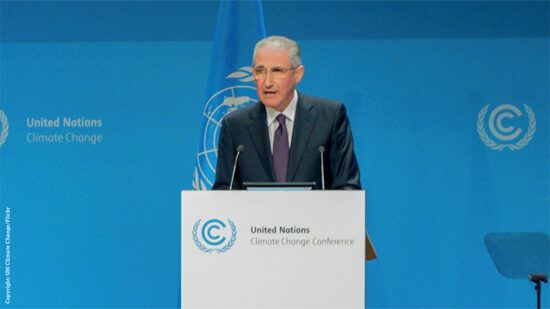ShareAction has committed to continue to engage with Nestlé after only 11% of shareholders voted in favour of a resolution challenging the high-profile chocolate brand to reduce its impact on people’s health.
At the AGM last week, 88% voted against the resolution filed by a coalition of shareholders including Legal & General Investment Management (LGIM) and Candriam, and led by ShareAction.
It called on Nestle to implement the following:
- Set key performance indicators (KPIs) regarding the absolute and proportional sales figures for food and beverage products according to their healthfulness, as defined by a government-endorsed Nutrient Profiling Model.
- Provide a timebound target to increase the proportion of sales derived from these healthier products.
Only 11% voted in favour of the resolution, while 1% abstained.
Simon Rawson, deputy chief executive of ShareAction, said the vote achieved may be less than the coalition wanted, the “direction of travel is clear”.
“Investors and consumers are recognising the importance of addressing the business risks and public health impacts of an industry that is heavily reliant on the sales of unhealthy food. They have growing expectations not only from Nestlé but from all food manufacturers.
“Left unaddressed, the public health trends that spurred this resolution will only worsen; consequently we expect investor support for such resolutions at food companies to increase.
“We look forward to continued engagement with Nestlé and hope to see progress towards the health goals the company itself claims.”
Rawson also noted the rules around shareholder resolutions may have impacted the results:
“We know that while many supported the objectives of the resolution, the fact that shareholder proposals in Switzerland require amendment to companies’ articles of association deterred many from voting in support. These rules need reform to create a route for constructive shareholder proposals that does not require changes to the articles. There is investor appetite for it.”
Reliance on unhealthy foods
Last month, the coalition of shareholders said they have been “left with no option” but to bring forward a resolution as the world’s biggest food company had failed to set out targets to reduce its reliance on unhealthy foods.
“Nestlé has an enormous influence on billions of people’s diets and lives through the products it makes, advertises and sells to us,” said Catherine Howarth, chief executive at ShareAction, at the time.
“While the company claims in its mission statement that its products have ‘the power to enhance lives’, in reality three quarters of Nestlé’s global sales are unhealthy products containing high levels of salt, sugar and fats.
“As Nestlé has consistently failed to set out how it will shift the balance of its sales towards healthier food options, concerned investors have been left with no option but to bring forward a resolution at the company’s AGM in April.
“Any move away from sales of unhealthy products by Nestlé will inevitably support healthier communities all over the world and in the long term help economies too.”
In an update on its voting intentions last week, LGIM said it planned to vote in favour of the resolution and highlighted nutrition as a global stewardship sub-theme for the group.
“Nutrition is an important topic for investors because it has a significant impact on the health and wellbeing of individuals, communities and societies. The interconnected challenges of obesity, undernutrition and micronutrient deficiencies is estimated to be 5% of global income, or $3.5trn per annum.”
ShareAction added following the AGM results it hoped it had prompted investors to think about long-term health impacts and business risks involved in businesses like this.
“While the majority of shareholders did not support the resolution, we hope that it has encouraged them to think about the public health impacts of their investments,” said Rawson.








